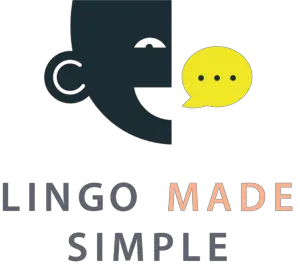Western culture has evolved significantly over the past 60 years. Countries like the United States, Great Britain, and Canada have gone from working weeks that were almost exclusively 40 hours from Monday to Friday to varying 7-day weekly schedules.
Although some professions have always followed that structure, almost every industry has now adopted scheduling that requires workers to come in on the traditional weekend days of Saturday and Sunday.
Many workers still get a “weekend” in their schedule. Those two days off might fall on a Monday and Tuesday instead of a Saturday or Sunday.
This change has caused many people to wonder when it would be appropriate to offer niceties in closing, such as telling someone to “have a good weekend.”
When to Say “Have a Good Weekend”
Weekend well-wishing is appropriate on Fridays, Saturdays, or Sundays in most cultures as a generic expression. If you know that someone has two days off in the middle of the week, you can still tell them to “have a good weekend” because they get one on an alternative schedule.
Although it might sound awkward to wish someone a great weekend at the start of the week, there are times when it would still work.
- If you preface the statement by saying something like, “I’m not sure if I’ll speak to you again this week, so I hope that you have a good weekend if we don’t connect.”
- It is offered casually on Thursday or Friday as a greeting. You could say, “Have a nice weekend” as readily as, “The weather is hot today.”
- You might be leaving on a business trip or an extended weekend, so you offer this expression to people while leaving.
Some people like to put a different spin on the idea of wishing someone a good weekend. They might say, “Have a happy weekend!” or “Have an exciting weekend!”
It is also customary to have someone say, “Thank you – you too!” after offering it as a closing greeting.
Is “Have a Nice Weekend” a Formal Greeting?
Although “have a nice weekend” can be presented through formal exchanges between co-workers, business networks, and other professionals, it is typically seen as an informal conversation component.
It is the equivalent of “Thank you for your time” in many circles. When you add it at an appropriate time, it’s a nice touch that shows you care for how others feel.
That makes it more like small talk.
Small talk is a polite conversation that involves something uncontroversial or unimportant. It doesn’t cover functional topics or carry with it the risk of a social transaction.
Bronislaw Malinowski initially studied the concept of small talk in 1923 with a published work that looked at how primitive languages were structured. The ability to engage with these expressions is considered a social skill, which means it becomes a type of social communication.
Although it seems to serve little purpose, small talk opportunities follow the same format as other bonding rituals. It is also an option that lets you manage interpersonal space when something feels uncomfortable.
What Is the Structure of Small Talk?
When engaging in small talk, most people follow a four-step process that creates the comfortable interactions that many enjoy.
- It begins with a conversation opener. When people don’t know each other, this process lets them show that friendly intentions are what is getting offered. It might be a social encounter or a business meeting, but the goal is still to establish reputation and expertise.
- It reinforces the relationship. If a relationship exists between two or more people as they start a conversation, the small talk enables each person to signal their mood and feelings while receiving the same information in return.
- It prevents rejection. Adding elements like “Have a nice weekend” to close a conversation prevents an exchange where someone comes away feeling rejected. Even when one person doesn’t want to leave, it softens the parting to encourage hope for a future talk.
- It fills empty space. Small talk is also useful for times when you want to avoid silence. When two people are together in the same place without any noise, it often feels awkward and uncomfortable. You can break the tension by creating conversations about generalized subjects instead of dealing with unbearable empty spaces.
What Is the Danger of Using Small Talk?
Small talk in business tends to happen with co-workers who are at the same level. It is also helpful for developing working relationships with direct reports. When someone in that position says, “Have a nice weekend,” it often serves as a relationship-building moment for both parties.
I’ve always found that the problem with small talk is that it becomes a habit. You get so engrained into speaking patterns that there isn’t any thought placed on the conversation.
You might encounter someone and say, “How are you doing today?”
They’d reply, “Fine. And you.”
And you could return that by saying, “Fine.”
If you’ve forgotten that you were the one who started the small talk conversation, you might come back with “Fine – and you?” That creates a repetition that produces the same awkwardness as silence.
When you ask someone a question with small talk, you can also get an unpredictable answer. Someone might say, “Terrible.” Instead of it becoming a social engagement, the query is taken as a serious comment that seems to be a desire for a deeper conversation.
Small talk can also turn into competitive verbal sparring. I find this issue happens with guys quite frequently, including putdowns and insults. Although it is meant to be playful, it can often turn into something more than that.
Cultural differences can play a role in this exchange. Some people are highly skilled at using lots of words to convey minimal information.
That’s why the safest option is to tell someone to “Have a good weekend” when you want to escape the small talk. It’s less formal than saying goodbye while accomplishing the same result.

